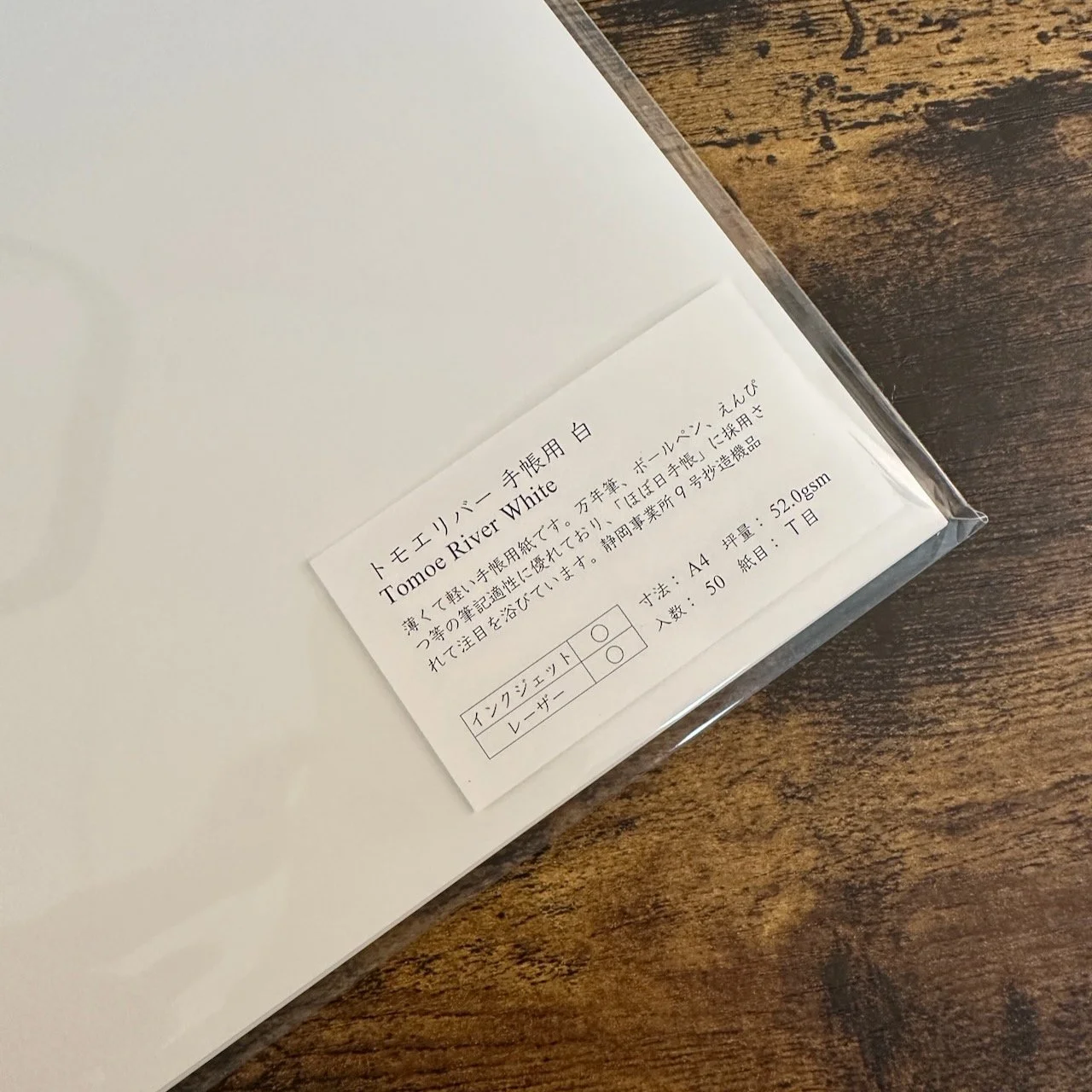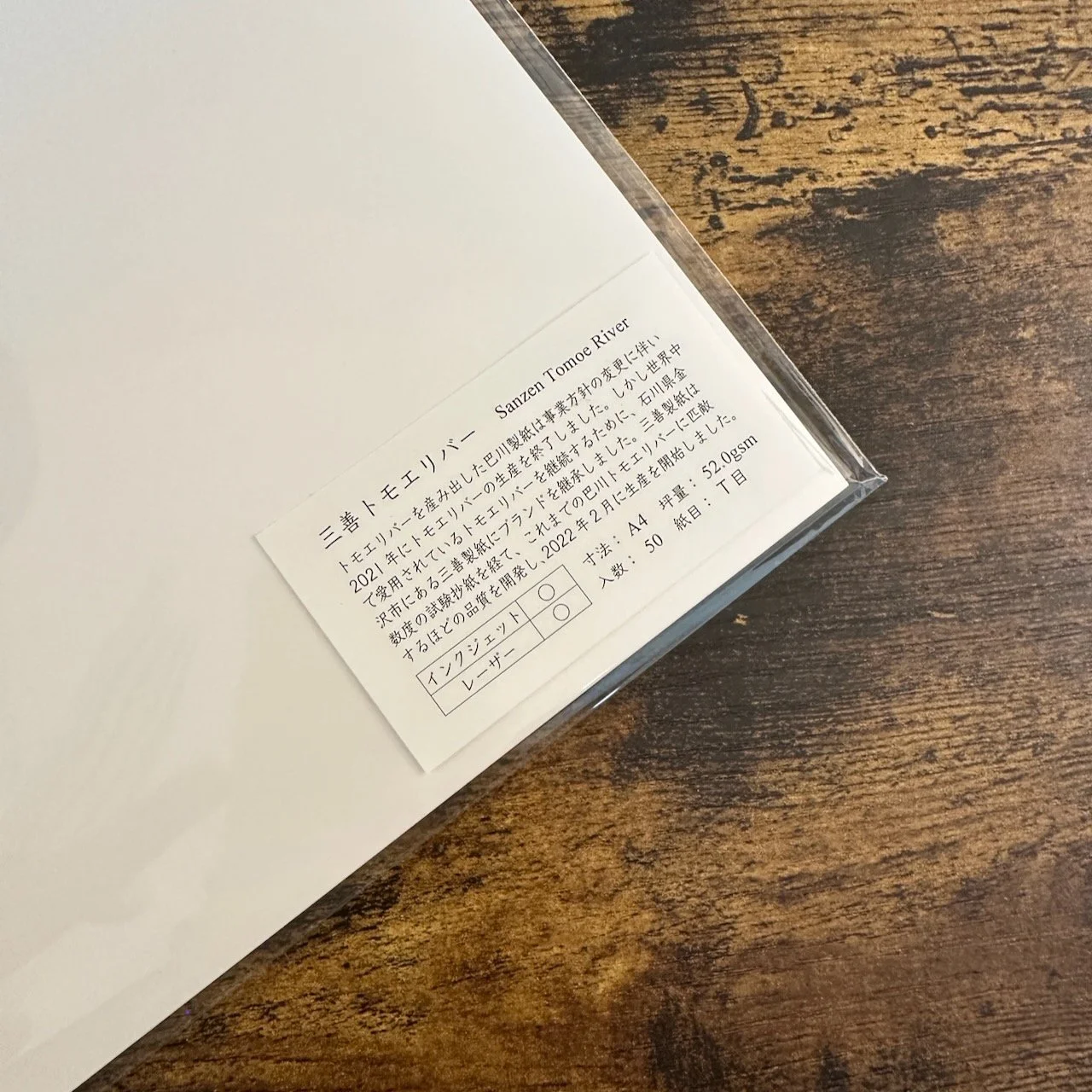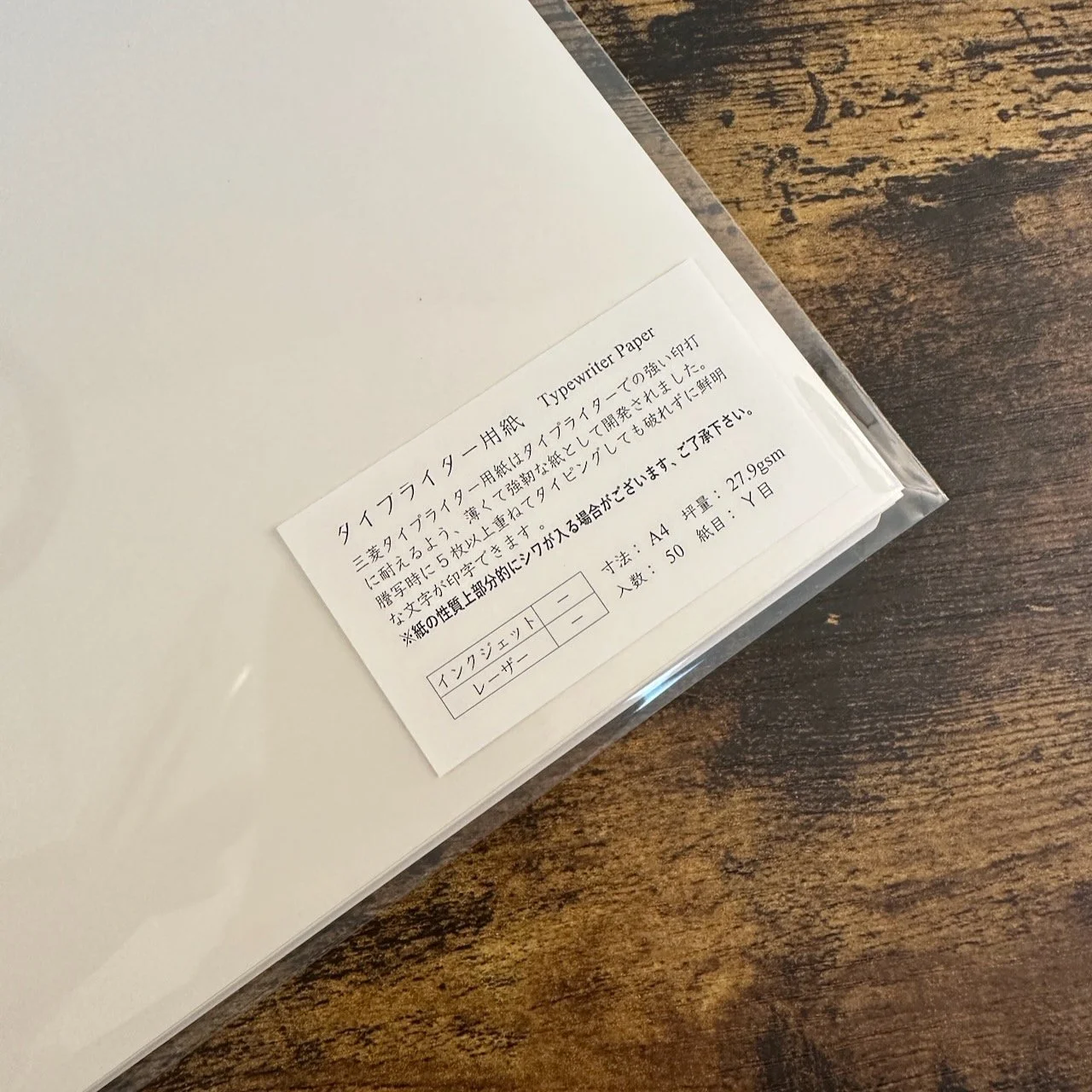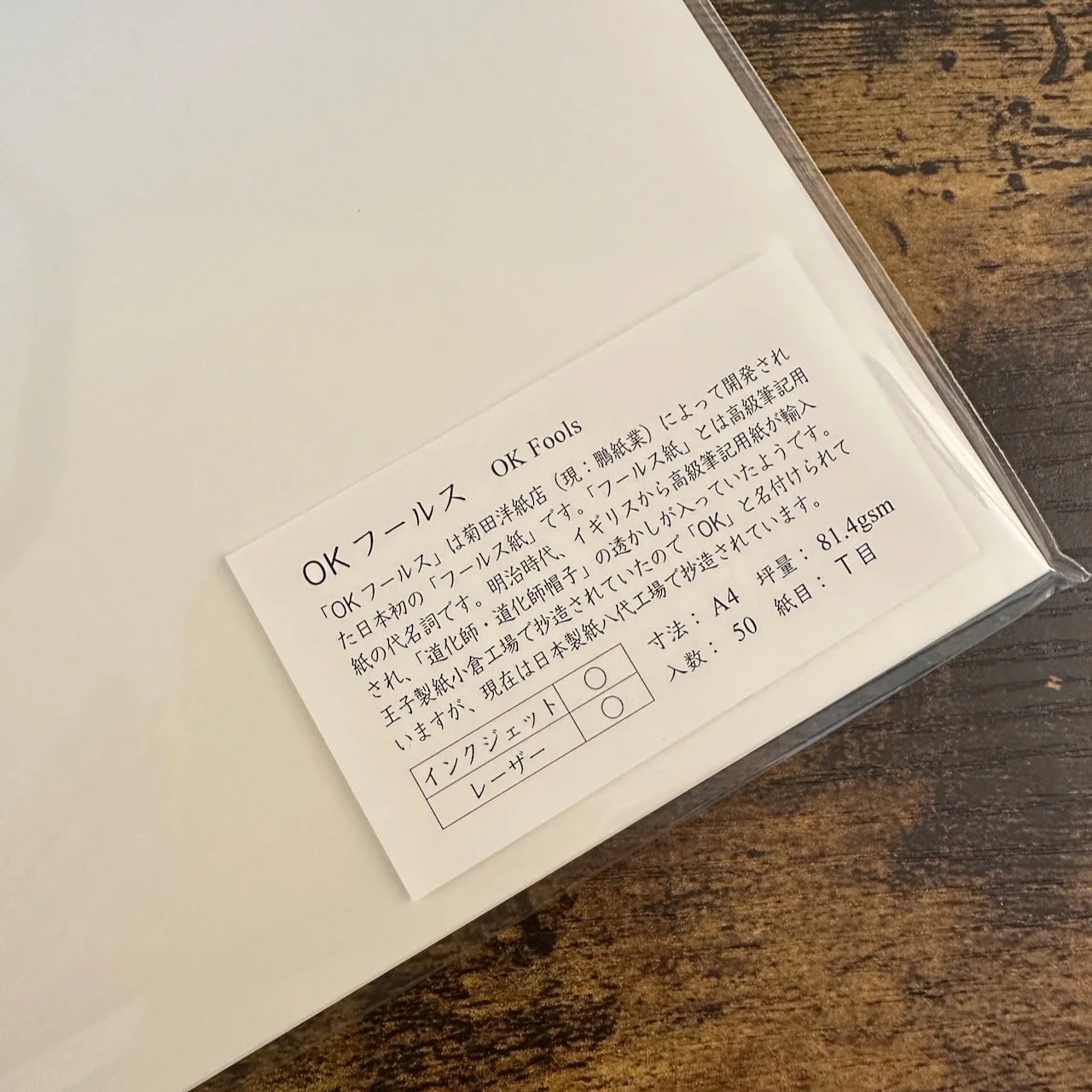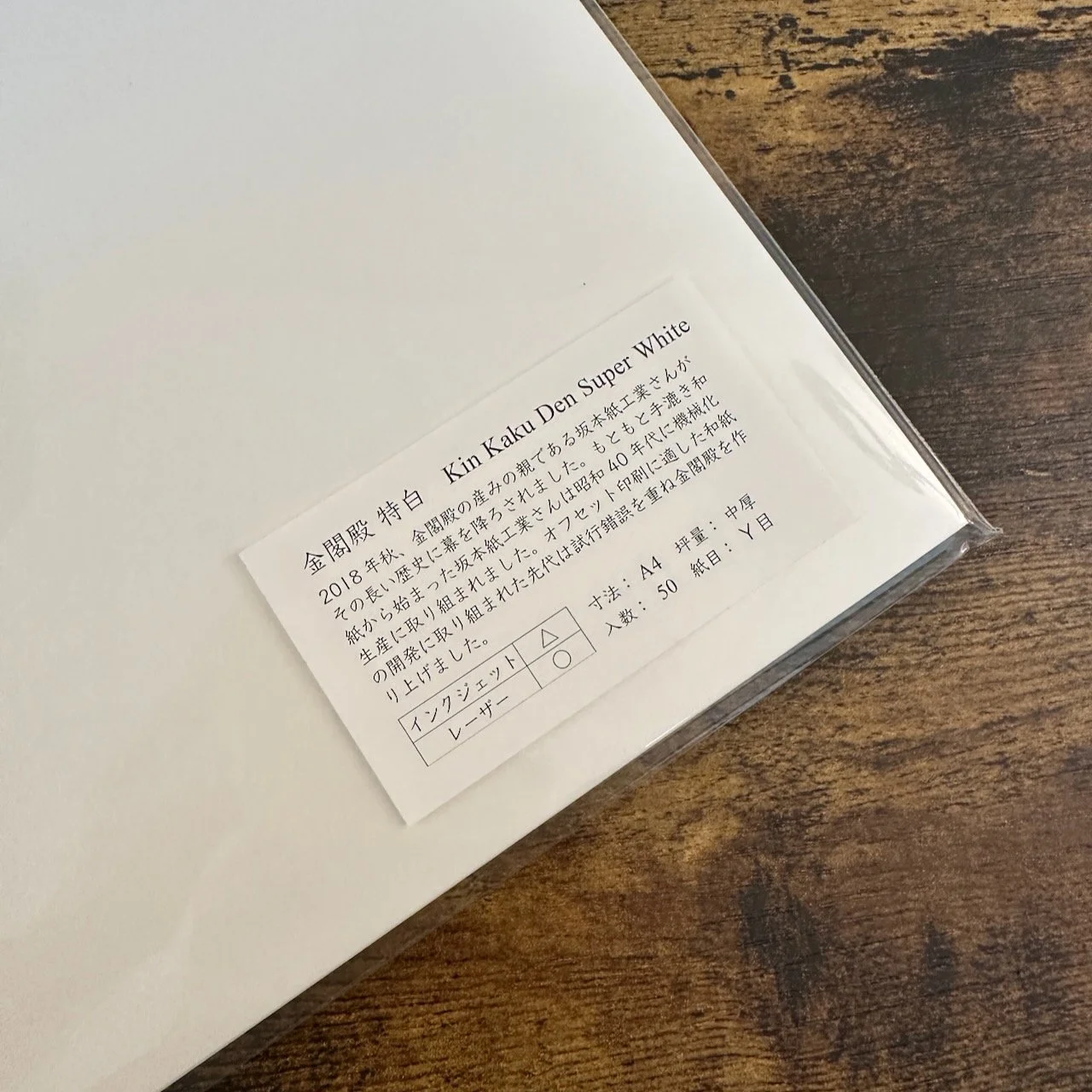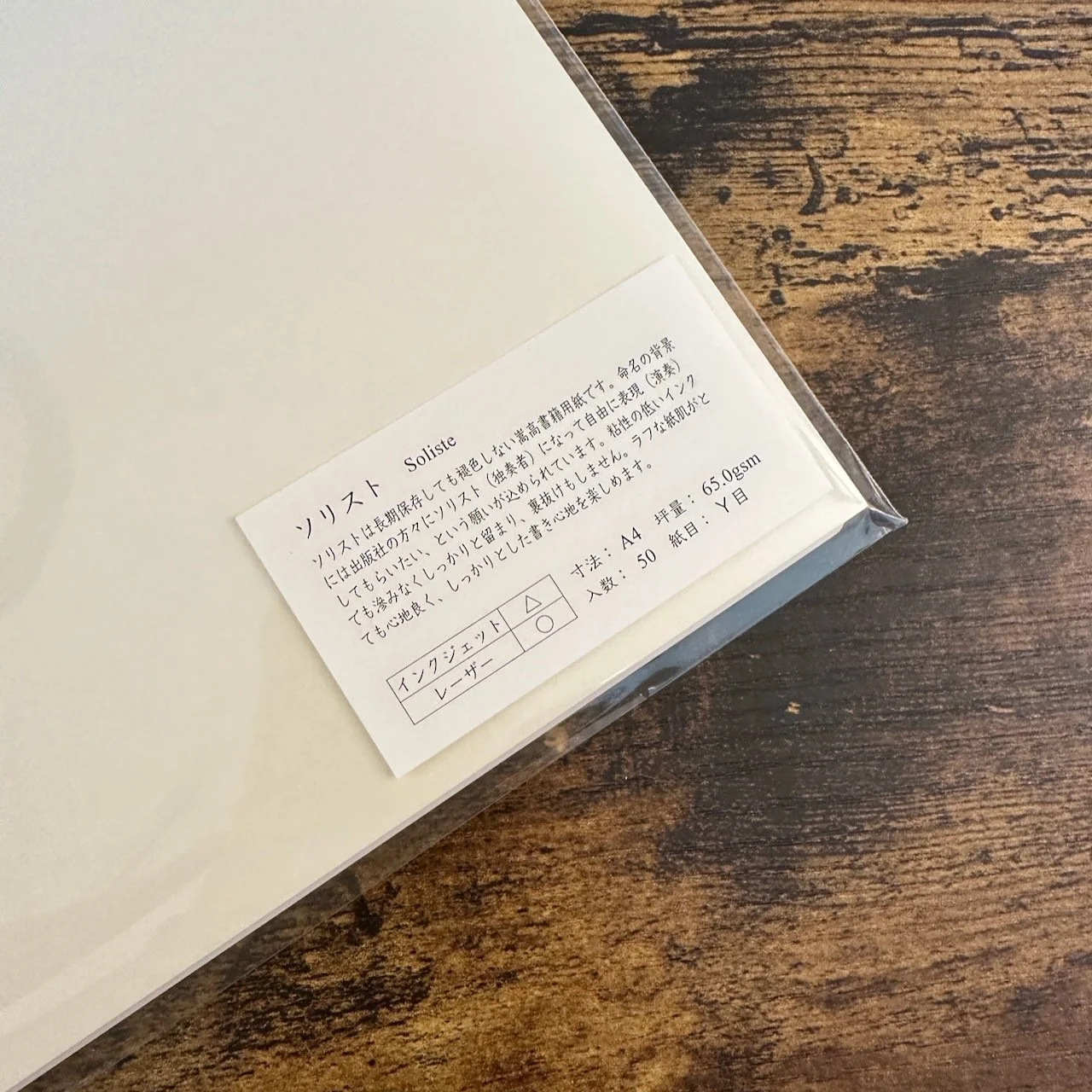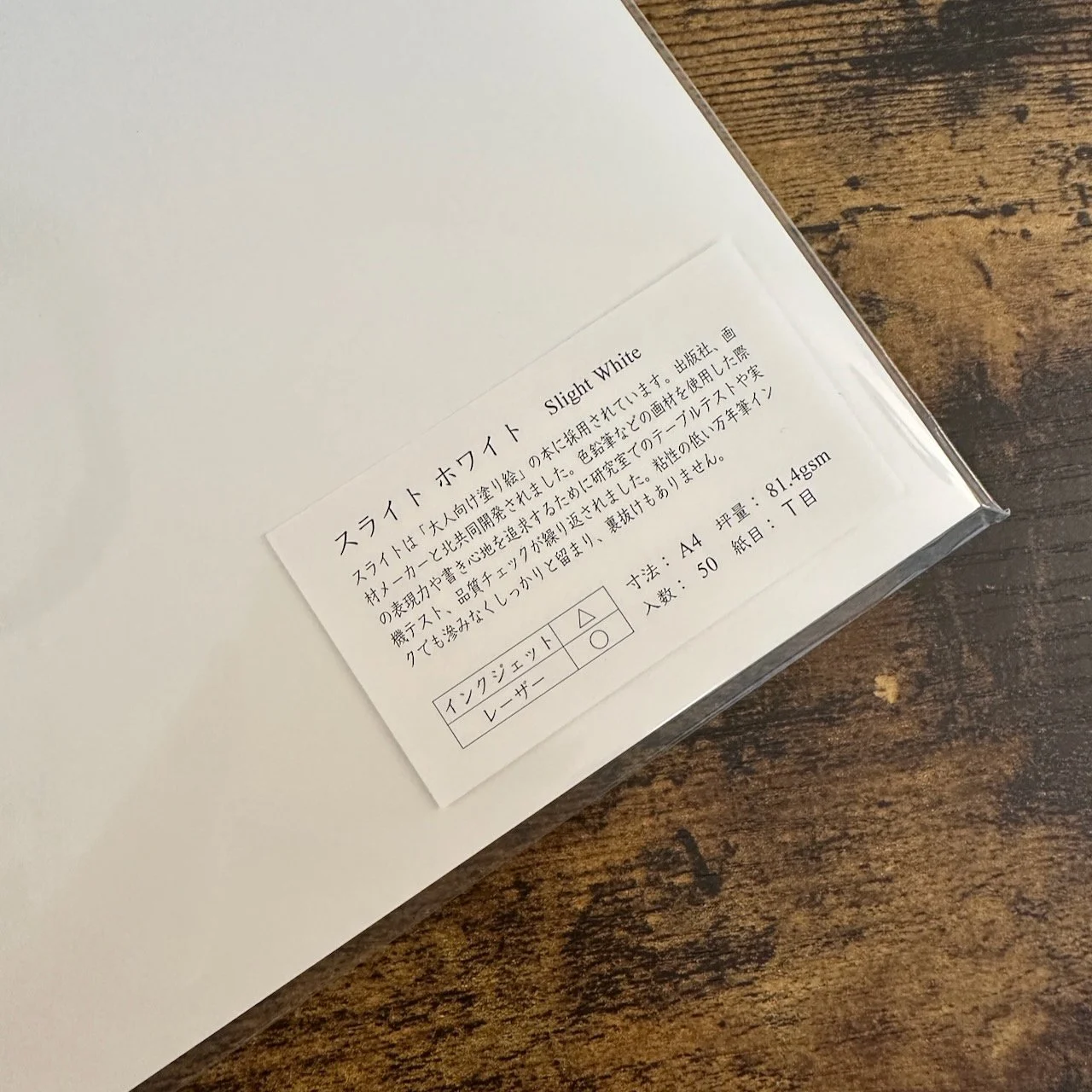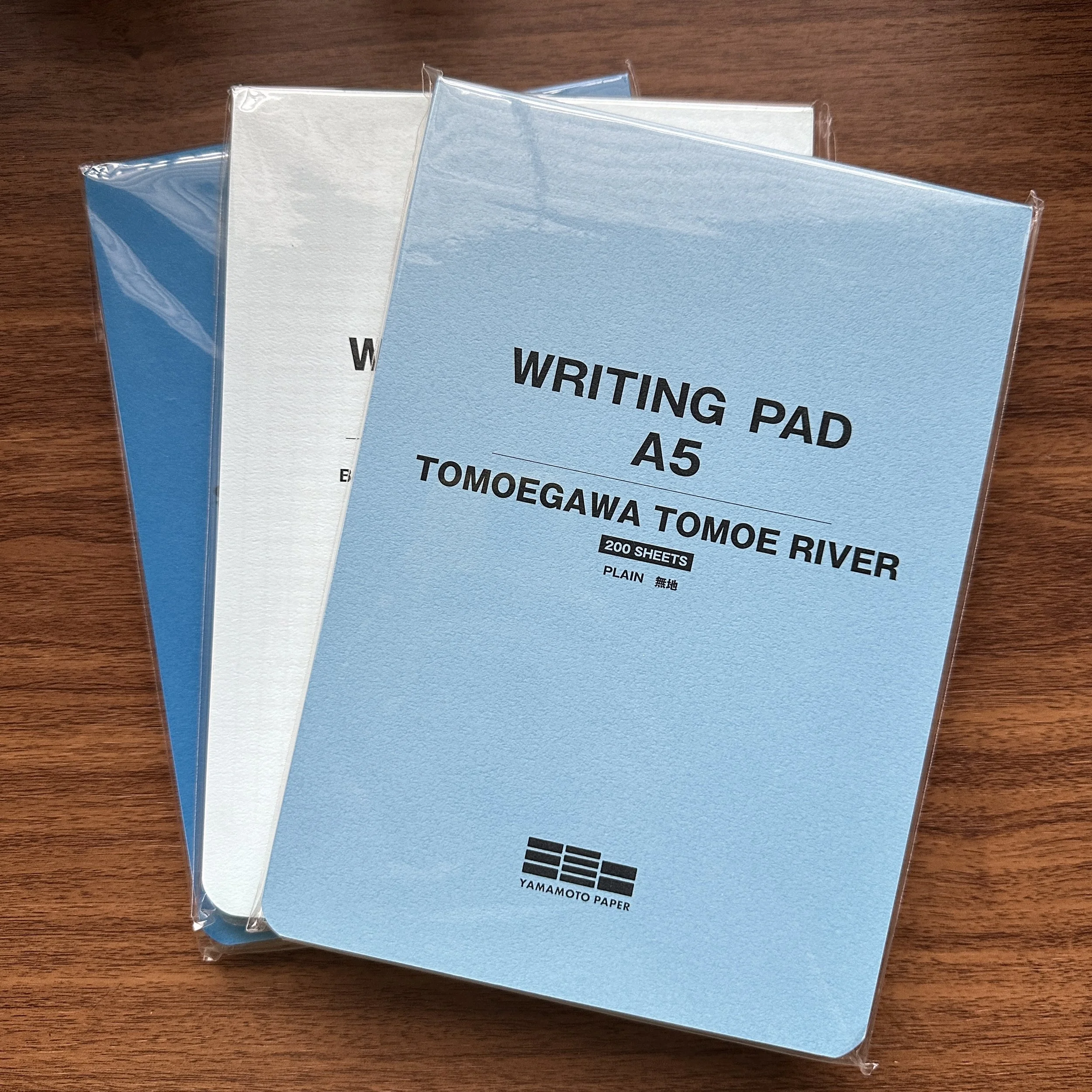Yamamoto Paper Select Premium Japanese Papers
Yamamoto Paper Select Premium Japanese Papers
Yamamoto Paper has collected a range of select Japanese papers, including some that have been discontinued or are in danger of being discontinued as the machinery used for their manufacturing falls out of repair. All papers are made in Japan, and sold in packages of 50 A4 sheets.
Current papers include:
Sanzen Tomoe River (52gsm): The original manufacturer of Tomoe River Paper discontinued production of the paper in 2021, after which the brand was transferred to Sanzen Paper Manufacturing. Using a slightly different recipe, many believe Sanzen paper feels smoother and is more resistant to bleeding. The paper is also 5 microns thicker, which gives it a firmer feel and greater strength for use with pencils and erasable pens.
Tomoegawa Tomoe River (52gsm): The original Tomoe River Paper, known for its thinness. Despite how thin this paper is, it’s extremely ink friendly.
OK Fools (81.4gsm): In Japan, the term "Fools Paper" has long been used to refer to high-end writing paper. British Fool's Cap paper was first imported into Japan in the late 1800s. The popular Japanese version was produced at the Oji Ogura Factory, where the name OK comes from. OK Fools paper works well with most fountain pen inks, though especially wet inks will work best with a medium nib or narrower. Otherwise you might start to see some pinpoint bleed-through.
Kin Kaku Den Super White Paper: In the fall of 2018, the manufacturer of Kin Kaku Den, Sakamoto Paper Industries, decided to close operations. Kin Kaku Den was a paper developed through extensive trial-and-error with the goal of creating Washi paper suitable for offset printing. Kin Kaku Den was commonly used in letter sets and for prayer writing by Buddhist monks, and by the Ino Washi Museum for their pamphlets and entry tickets. Unfortunately it is now discontinued.
Typewriter Paper (27.9gsm): Typewriter paper combines thinness and durability - both necessary for use with carbon paper. This paper handles ink well, and has good printing qualities. Produced using old equipment at the Takasago factory in Hyogo prefecture, it has a level of quality difficult to produce using modern mass-production equipment. Yamamoto’s fountain pen tests showed short dry times, good color representation, and no bleedthrough.
Slight White Paper (81.4gsm): Produced at the Nagaoka Mill, Slight is used in some adult coloring books. Jointly developed by a publishing company, an art supply manufacturer to work well with colored pencils and other drawing materials. Yamamoto paper’s ink testing found no bleedthrough (as did our own testing). The paper has a nice texture, for those who appreciate a tactile feel.
Soliste (65gsm): Made at the Kagoshima prefecture Sendai Mill, Soliste was originally developed as a book paper that resists fading. Yamamoto’s testing revealed no bleedthrough, and the slightly rough surface offers a pleasant texture. This particular variant of Soliste is cream-toned.

